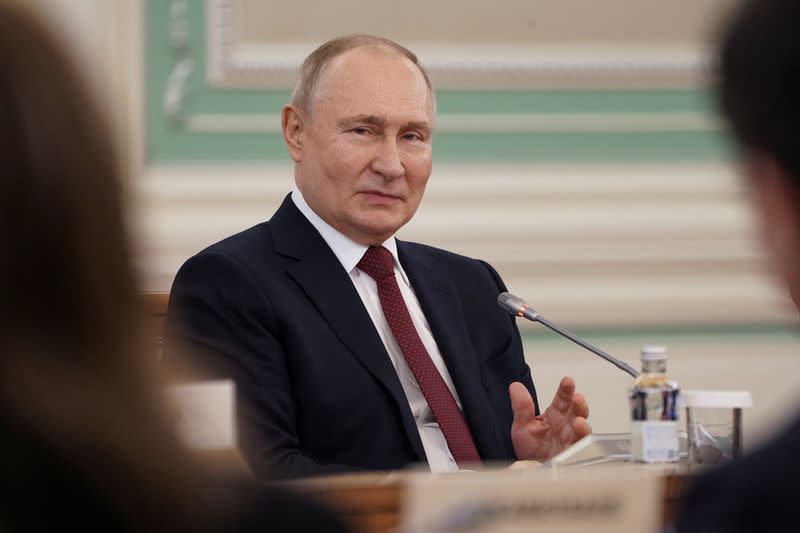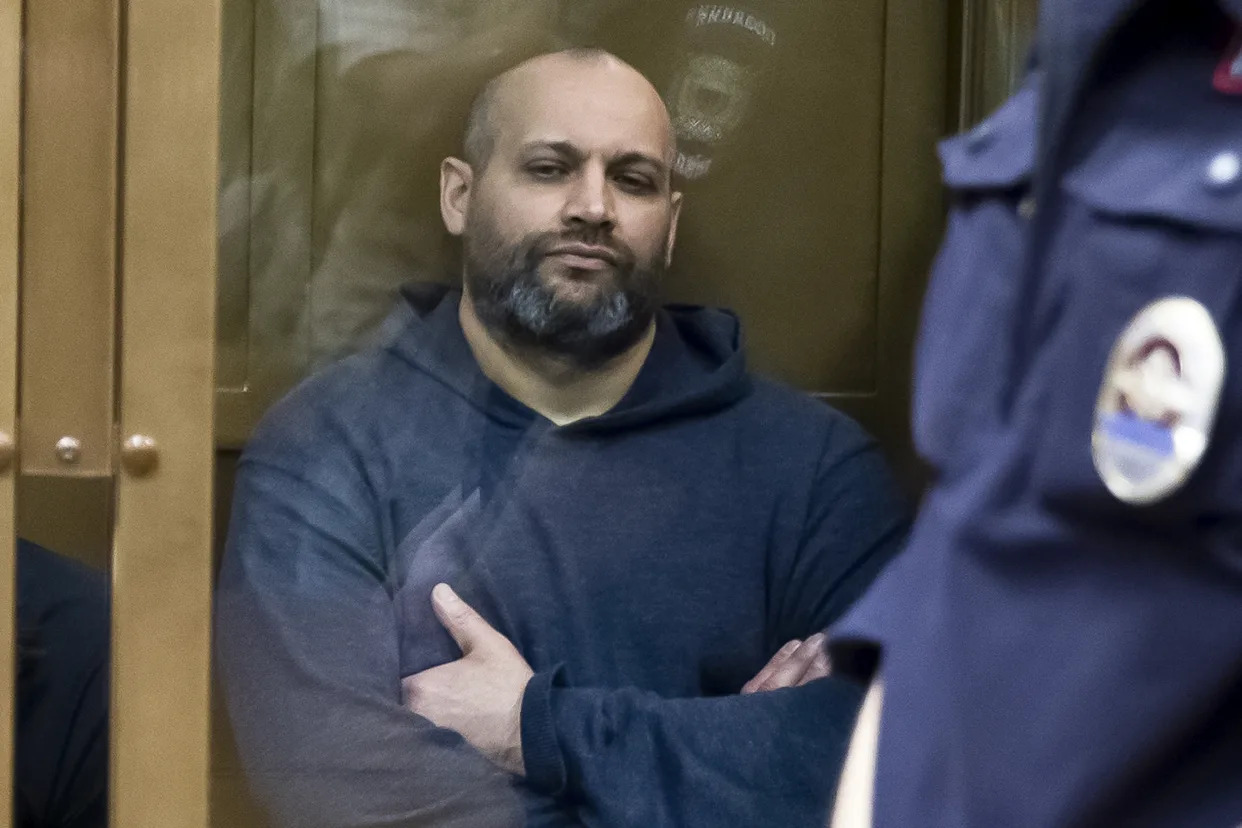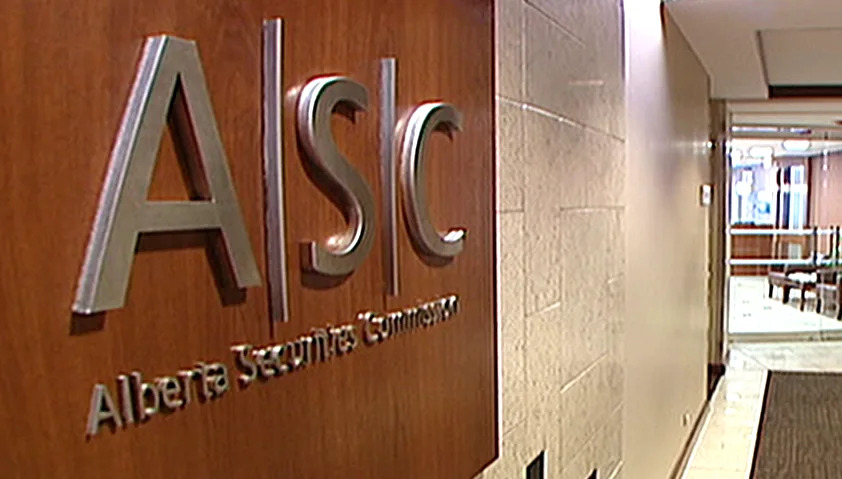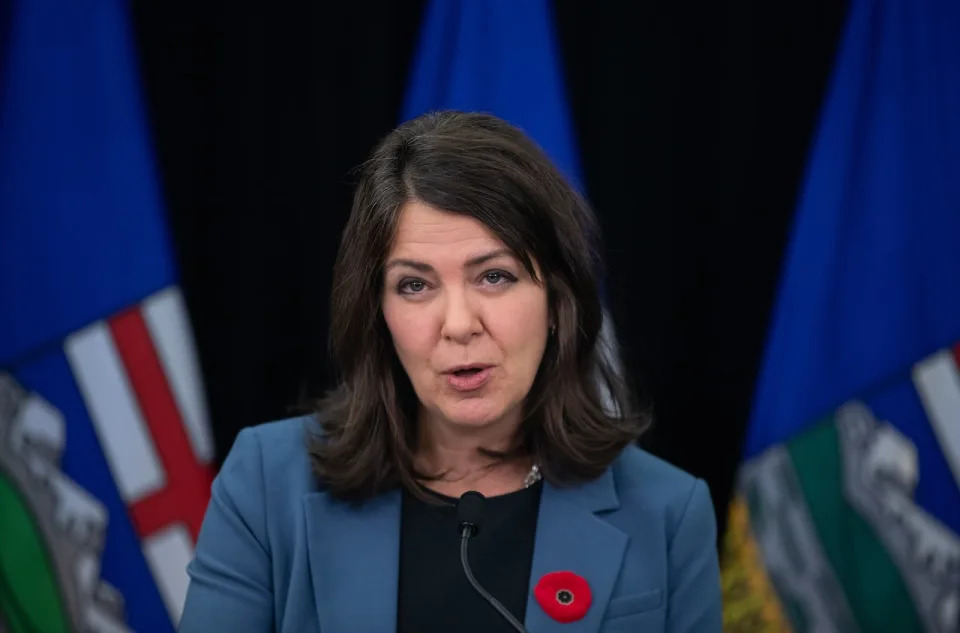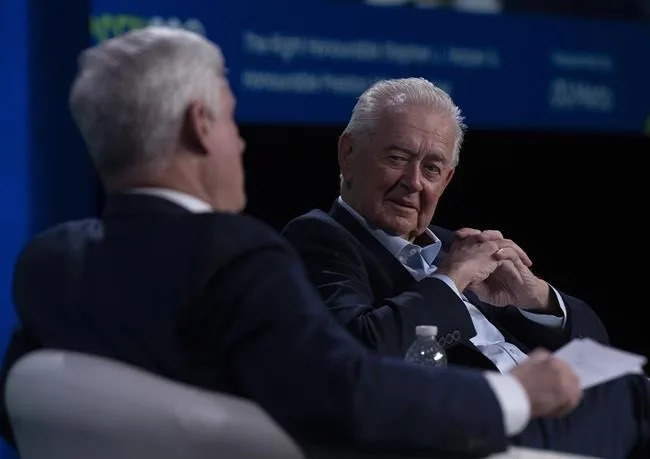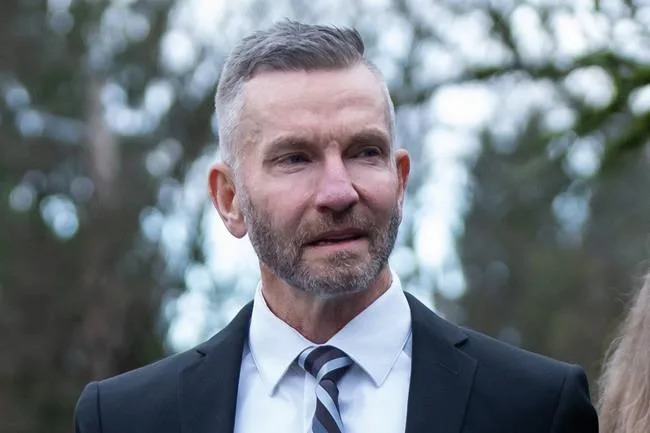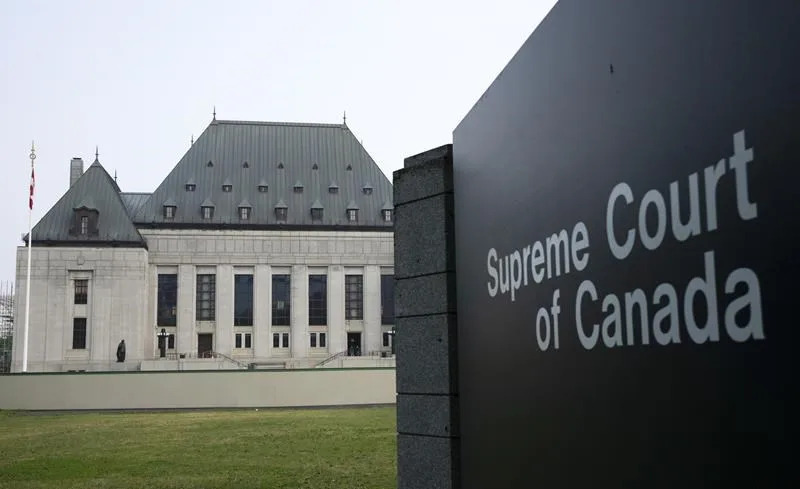ANALYSIS BY ZACHARY WOLF, CNN
November 16, 2023
A few people can make a very big scene.
It was just a line of cars that shut down the Bay Bridge between Oakland and San Francisco, stopping traffic headed in the direction of a meeting of world leaders that included US President Joe Biden and Chinese President Xi Jinping.
Stopping traffic, evacuating the DNC
Traffic around the convention center was already restricted so the protest probably had no effect on the Asia-Pacific Economic Cooperation summit. But grinding Bay Area traffic to a halt for a few hours allowed the small group of protesters, calling for a ceasefire in Gaza, to get pictures of their banners out in social and traditional media.
Similarly, it was a relatively small group of protesters, apparently from left-wing Jewish and socialist groups, also making a statement in support of Palestinians, who clashed with police in Washington, DC, Wednesday night.
Blocking entrances and exits to the Democratic National Committee headquarters on Capitol Hill, the protesters forced the evacuation of Democratic lawmakers, including House Minority Leader Hakeem Jeffries.
Jeffries was at a much larger gathering on the National Mall Tuesday, when he appeared on stage in front of many tens of thousands of people gathered to support Israel. At the Israel rally, Jeffries joined hands with Republican House Speaker Mike Johnson in support of Israel.

From left, House Speaker Mike Johnson, House Minority Leader Hakeem Jeffries, Senate Majority Leader Chuck Schumer and Sen. Joni Ernst join hands at the March for Israel on Tuesday. - Mark Schiefelbein/AP
On Thursday, Johnson posted on X that the protesters who blocked the DNC headquarters – leading to six Capitol Police officers seeking medical treatment but only one arrest – were “pro-Hamas,” which doesn’t seem accurate.
“As Americans, we must unite with one voice in steadfast support of our ally Israel,” Johnson said.
The conflict in the Middle East has brought Americans out to the streets. Hamas’ terror attacks, which killed more than 1,200 people in Israel, and Israel’s subsequent bombardment of Gaza, which has caused more than 11,000 Palestinian deaths, according to the Palestinian health ministry, have caused painful debates in the US about antisemitism, free speech on college campuses and US foreign military aid.
There are similar protests throughout the Western world. Hundreds of thousands of people rallied for Palestinians in London, calling for a ceasefire in Gaza on Armistice Day, which commemorates the end of World War I. Police, meanwhile, clashed with counter-protestors.
US protests are following Biden wherever he goes
When Biden went to his home in Wilmington, Delaware, over the weekend, hundreds of pro-Palestinian protesters marched along the street and made themselves known outside his house. CNN’s Kevin Liptak noted Biden has also seen protests in Illinois, where he recently traveled for a speech and that he has been interrupted twice by protesters calling for a ceasefire.
Biden and the US government support a “humanitarian pause” in hostilities in Gaza of multiple days to get basic supplies needed for human life into Gaza, but they argue that is not support for a ceasefire.
To the extent these protests are reflective of a split in the country, it is mostly a split on the political left.
More than half of the lawmakers that make up Democrats’ Senate majority sent a letter to Biden last week asking for clarity on how the administration would guarantee Israel mitigates civilian deaths in Gaza.
Democrats are just about evenly split on Biden’s handling of the Israel-Gaza conflict, according to an AP-NORC poll released last week. Most of those who disapprove of his performance on the issue say the US is too supportive of the Israelis.
Younger Democrats and Democratic voters of color were more likely than White Democrats and Democrats 45 and older to disapprove of Biden’s handling of the issue. Those are two constituencies that are bedrocks of the coalition Biden and Democrats hope will turn out to get him reelected next year.
This is not the ’60s
Given the protests are focused on a Democratic president and led to lawmakers being evacuated from the DNC, it would be easy to start drawing comparisons to 1968, when protests and violence marred the Democratic National Convention.
That level of discontent today feels very different. There’s no war in Vietnam and no draft, for starters.
In 1968, President Lyndon B. Johnson also faced multiple, credible challenges from within the Democratic Party. While many Democrats today wish Biden would step aside, the chaos that resulted from Johnson’s decision to bow out of his reelection campaign should be a warning to them.
Johnson bowed out of the presidential race in March 1968, after barely winning the New Hampshire primary. Today, there hasn’t exactly been a groundswell of support for Rep. Dean Phillips, the Minnesota Democrat challenging Biden.
In 1968, not long after Johnson dropped out of the presidential race, the assassination of Martin Luther King Jr. set off devastating riots in multiple US cities. A Democratic presidential candidate, Robert F. Kennedy, was killed by an assassin in June. There were riots outside the Democratic National Convention in August, when delegates cast away the anti-war candidate Sen. Eugene McCarthy in favor of Johnson’s Vice President Hubert Humphrey, who had not taken part in any primaries.
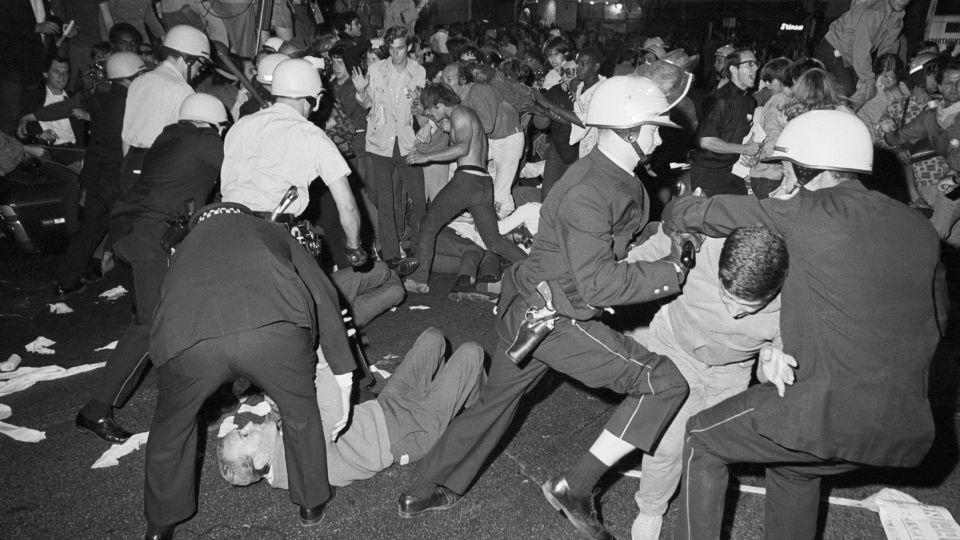
In this August 1968 photo, police and demonstrators clash near the Conrad Hilton Hotel during the Democratic National Convention in Chicago.
- Bettmann Archive/Getty Images
A different kind of third-party candidate
Kennedy’s son, Robert F. Kennedy Jr., decided to run for president in 2024 as an independent – after first trying to gain traction as a Democrat – because his politics, which is fueled by conspiracy theories, is out of whack with a lot Democrats.
That doesn’t mean Kennedy won’t influence the upcoming election. This year, Kennedy has polled as high as 22% in a Quinnipiac University poll, which is on the same level as former Alabama Gov. George Wallace in 1968 or Ross Perot in 1992, according to CNN’s Harry Enten. Nobody is expecting Kennedy to win states like Wallace, who carried much of the South and amassed 46 electoral votes.
But Enten also looked at recent New York Times/Siena College polling in six key states that helped Biden win in 2020 and where former President Donald Trump, at least according to this poll, currently has a lead.
From Enten’s report:
When Kennedy was introduced as an option among likely voters, Trump was ahead of Biden in only two states (Georgia and Nevada). His 5-point leads in Arizona and Pennsylvania disappeared into ties. Biden held a well-within-the-margin-of-error edge in Pennsylvania, while the two were tied in Michigan.
Put another way, a clear Trump polling lead became a jumbled mess with no clear favorite to win in the Electoral College thanks to Kennedy.
Jumbled mess is exactly what it feels like trying to make sense of US politics at the moment.
The protests outside DNC headquarters signal the divides in Biden's base over Israel-Hamas war
WILL WEISSERT, CHRIS MEGERIAN AND JOEY CAPPELLETTI
November 16, 2023

WASHINGTON (AP) — National Democrats this year have insisted the party is united and ready to rally around President Joe Biden heading into next year's election. But a protest outside the Democratic National Committee headquarters signals growing tension within the coalition that has propelled Democrats to victory in recent elections.
Clashing with police Wednesday night were demonstrators calling for a ceasefire in Gaza and criticizing Biden's support of Israel's offensive following the Oct. 7 Hamas attack. Inside the building were Democrats organizing to try to take back the U.S. House next year, including moderates from swing states Biden flipped from former President Donald Trump.
Both the protesters and the members of Congress on Thursday said they were shaken and angry at the other side. Rep. Debbie Dingell of Michigan, a longtime Biden ally, said: "We were so close. I mean, I was just on the other side of that door. I was rattled.”
The political symbolism of a violent confrontation outside the DNC isn’t lost on some activists who are trying to pressure Biden by warning that he's putting his reelection in danger. Even small cracks in Biden's 2020 coalition could hurt his 2024 chances in what's looking likely to be a rematch with Trump.
“The Democratic Party and the Democratic leadership is not aligned and is not listening to us,” said Dani Noble with Jewish Voice for Peace, who helped organize the demonstration and said that 90 participants were injured by police during it.
Biden allies noted that some of the groups who organized the DNC protest are aligned with the far left, outside the party’s mainstream. DNC chairman Jaime Harrison posted on X, formerly Twitter: “As Americans we have a right to demonstrate peacefully, but violence is never acceptable.”
Biden and first lady Jill Biden called Thursday into a DNC and campaign staff meeting to salute law enforcement for keeping everyone safe and thank “the staffers for all they do,” the White House said.
David Eichenbaum, a veteran consultant who worked on Democratic Gov. Andy Beshear’s reelection last week in otherwise reliably Republican Kentucky, said he thinks “Americans expect their president to show leadership, and that involves making tough decisions.”
“He’s led with his values on this,” Eichenbaum said of Biden, adding, “You’re always better off when you lead and you govern with your values. Voters don’t want somebody who tries to please everybody. Because you can’t please everybody and then they see through that.”
The U.S. is providing weapons and intelligence support to Israel as it mounts an offensive into Gaza with the goal of rooting out Hamas following its Oct. 7 attack, which killed more than 1,200 people. Biden has spoken repeatedly with Israeli Prime Minister Benjamin Netanyahu and says he's working for the release of Hamas-held hostages, including some Americans.
More than 11,000 Palestinians, two-thirds of whom are women and minors, have been killed since the war began, according to the Health Ministry in Gaza, which does not differentiate between civilian and militant deaths. About 2,700 people have been reported missing. The mounting death toll has led to calls in parts of the U.S. and the world for a ceasefire. Israel has declined one so far.
The president’s handling of the Israeli-Palestinian conflict has sharply divided members of his party, according to an Associated Press-NORC Center for Public Affairs Research poll released last week. The poll found 50% of Democrats approved and 46% of Democrats disapproved of how the president is handling the conflict. Of those who disapprove, 65% say the U.S. is too supportive of Israel.
Wednesday’s violent confrontation came while Biden was in San Francisco for the Asia-Pacific Economic Cooperation summit. He met with Chinese President Xi Jinping and later announced that the two countries had agreed to work together to better combat fentanyl production and reestablish direct military-to-military communications — potentially politically valuable foreign policy wins.
The White House and Biden's re-election campaign also say they're listening to the concerns of both Jewish and Arab voters and staffers.
A senior White House official involved directly with Arab-American outreach said that a call led every day since Hamas' initial attack by Anita Dunn, one of Biden’s top political advisers, discusses the war in Gaza and how to increase engagement with Jewish-American and Muslim-American communities.
The official said that other efforts by the White House include former DNC chair Tom Perez, who is now a senior advisor to the president, calling state lawmakers in Michigan to discuss issues around the war. The person was not authorized to speak publicly and spoke on condition of anonymity.
White House spokesperson Andrew Bates said the Biden administration has pushed for humanitarian pauses in the fighting and getting aid into Gaza and that “fighting against the poison of antisemitism and standing up for Israel’s sovereign right to defend itself have always been core values for President Biden.”
Still, organizers calling for a ceasefire are pledging more demonstrations. That raises the prospect of repeated disruptions at campaign events and next year's Democratic National Convention in Chicago — more than half a century after Vietnam War demonstrations marred the 1968 convention in that city. Democrat Hubert Humphrey would lose that fall to Republican Richard Nixon.
“I thought the Democratic Party was the party of peace and treating people equally,” said Eva Borgwardt, a spokesperson for IfNotNow, a group of American Jews who oppose Israeli government policies. Borgwardt said she helped turn out Democratic voters in Arizona, which Biden won in 2020 by just over 10,000 votes.
“I know how crucial motivation and faith in the party is to be able to turn out people to vote," she said. "And right now, I know so many young voters, including Jewish voters, who are looking at the actions of our Democratic leadership and being completely horrified and disillusioned.”
But Rep. Hillary Scholten, a first-term representative from Grand Rapids, Michigan, said the protesters on Wednesday “chose violence” and were a “fringe element.”
“They chose to trap multiple members of Congress inside of a building to prevent their movement, including members of senior leadership in our Democratic Party,” said Scholten, who became the first Democrat to represent Michigan's second-largest city since the mid-1970s. “That is an extreme ratcheting up of the violence and whether that is a continued pattern, I think, remains to be seen.”
And Illinois Rep. Sean Casten, who was also inside the DNC during the protest, said that true leadership meant delivering “the greatest good for the greatest number — even if that’s unpopular.”
“The unanimity of the Democratic Party, broadly speaking, in support of President Biden, reflects a party that’s willing to do the right thing in the first instance,” he said.
___
Cappelletti reported from Lansing, Michigan.
WILL WEISSERT, CHRIS MEGERIAN AND JOEY CAPPELLETTI
November 16, 2023

WASHINGTON (AP) — National Democrats this year have insisted the party is united and ready to rally around President Joe Biden heading into next year's election. But a protest outside the Democratic National Committee headquarters signals growing tension within the coalition that has propelled Democrats to victory in recent elections.
Clashing with police Wednesday night were demonstrators calling for a ceasefire in Gaza and criticizing Biden's support of Israel's offensive following the Oct. 7 Hamas attack. Inside the building were Democrats organizing to try to take back the U.S. House next year, including moderates from swing states Biden flipped from former President Donald Trump.
Both the protesters and the members of Congress on Thursday said they were shaken and angry at the other side. Rep. Debbie Dingell of Michigan, a longtime Biden ally, said: "We were so close. I mean, I was just on the other side of that door. I was rattled.”
The political symbolism of a violent confrontation outside the DNC isn’t lost on some activists who are trying to pressure Biden by warning that he's putting his reelection in danger. Even small cracks in Biden's 2020 coalition could hurt his 2024 chances in what's looking likely to be a rematch with Trump.
“The Democratic Party and the Democratic leadership is not aligned and is not listening to us,” said Dani Noble with Jewish Voice for Peace, who helped organize the demonstration and said that 90 participants were injured by police during it.
Biden allies noted that some of the groups who organized the DNC protest are aligned with the far left, outside the party’s mainstream. DNC chairman Jaime Harrison posted on X, formerly Twitter: “As Americans we have a right to demonstrate peacefully, but violence is never acceptable.”
Biden and first lady Jill Biden called Thursday into a DNC and campaign staff meeting to salute law enforcement for keeping everyone safe and thank “the staffers for all they do,” the White House said.
David Eichenbaum, a veteran consultant who worked on Democratic Gov. Andy Beshear’s reelection last week in otherwise reliably Republican Kentucky, said he thinks “Americans expect their president to show leadership, and that involves making tough decisions.”
“He’s led with his values on this,” Eichenbaum said of Biden, adding, “You’re always better off when you lead and you govern with your values. Voters don’t want somebody who tries to please everybody. Because you can’t please everybody and then they see through that.”
The U.S. is providing weapons and intelligence support to Israel as it mounts an offensive into Gaza with the goal of rooting out Hamas following its Oct. 7 attack, which killed more than 1,200 people. Biden has spoken repeatedly with Israeli Prime Minister Benjamin Netanyahu and says he's working for the release of Hamas-held hostages, including some Americans.
More than 11,000 Palestinians, two-thirds of whom are women and minors, have been killed since the war began, according to the Health Ministry in Gaza, which does not differentiate between civilian and militant deaths. About 2,700 people have been reported missing. The mounting death toll has led to calls in parts of the U.S. and the world for a ceasefire. Israel has declined one so far.
The president’s handling of the Israeli-Palestinian conflict has sharply divided members of his party, according to an Associated Press-NORC Center for Public Affairs Research poll released last week. The poll found 50% of Democrats approved and 46% of Democrats disapproved of how the president is handling the conflict. Of those who disapprove, 65% say the U.S. is too supportive of Israel.
Wednesday’s violent confrontation came while Biden was in San Francisco for the Asia-Pacific Economic Cooperation summit. He met with Chinese President Xi Jinping and later announced that the two countries had agreed to work together to better combat fentanyl production and reestablish direct military-to-military communications — potentially politically valuable foreign policy wins.
The White House and Biden's re-election campaign also say they're listening to the concerns of both Jewish and Arab voters and staffers.
A senior White House official involved directly with Arab-American outreach said that a call led every day since Hamas' initial attack by Anita Dunn, one of Biden’s top political advisers, discusses the war in Gaza and how to increase engagement with Jewish-American and Muslim-American communities.
The official said that other efforts by the White House include former DNC chair Tom Perez, who is now a senior advisor to the president, calling state lawmakers in Michigan to discuss issues around the war. The person was not authorized to speak publicly and spoke on condition of anonymity.
White House spokesperson Andrew Bates said the Biden administration has pushed for humanitarian pauses in the fighting and getting aid into Gaza and that “fighting against the poison of antisemitism and standing up for Israel’s sovereign right to defend itself have always been core values for President Biden.”
Still, organizers calling for a ceasefire are pledging more demonstrations. That raises the prospect of repeated disruptions at campaign events and next year's Democratic National Convention in Chicago — more than half a century after Vietnam War demonstrations marred the 1968 convention in that city. Democrat Hubert Humphrey would lose that fall to Republican Richard Nixon.
“I thought the Democratic Party was the party of peace and treating people equally,” said Eva Borgwardt, a spokesperson for IfNotNow, a group of American Jews who oppose Israeli government policies. Borgwardt said she helped turn out Democratic voters in Arizona, which Biden won in 2020 by just over 10,000 votes.
“I know how crucial motivation and faith in the party is to be able to turn out people to vote," she said. "And right now, I know so many young voters, including Jewish voters, who are looking at the actions of our Democratic leadership and being completely horrified and disillusioned.”
But Rep. Hillary Scholten, a first-term representative from Grand Rapids, Michigan, said the protesters on Wednesday “chose violence” and were a “fringe element.”
“They chose to trap multiple members of Congress inside of a building to prevent their movement, including members of senior leadership in our Democratic Party,” said Scholten, who became the first Democrat to represent Michigan's second-largest city since the mid-1970s. “That is an extreme ratcheting up of the violence and whether that is a continued pattern, I think, remains to be seen.”
And Illinois Rep. Sean Casten, who was also inside the DNC during the protest, said that true leadership meant delivering “the greatest good for the greatest number — even if that’s unpopular.”
“The unanimity of the Democratic Party, broadly speaking, in support of President Biden, reflects a party that’s willing to do the right thing in the first instance,” he said.
___
Cappelletti reported from Lansing, Michigan.
